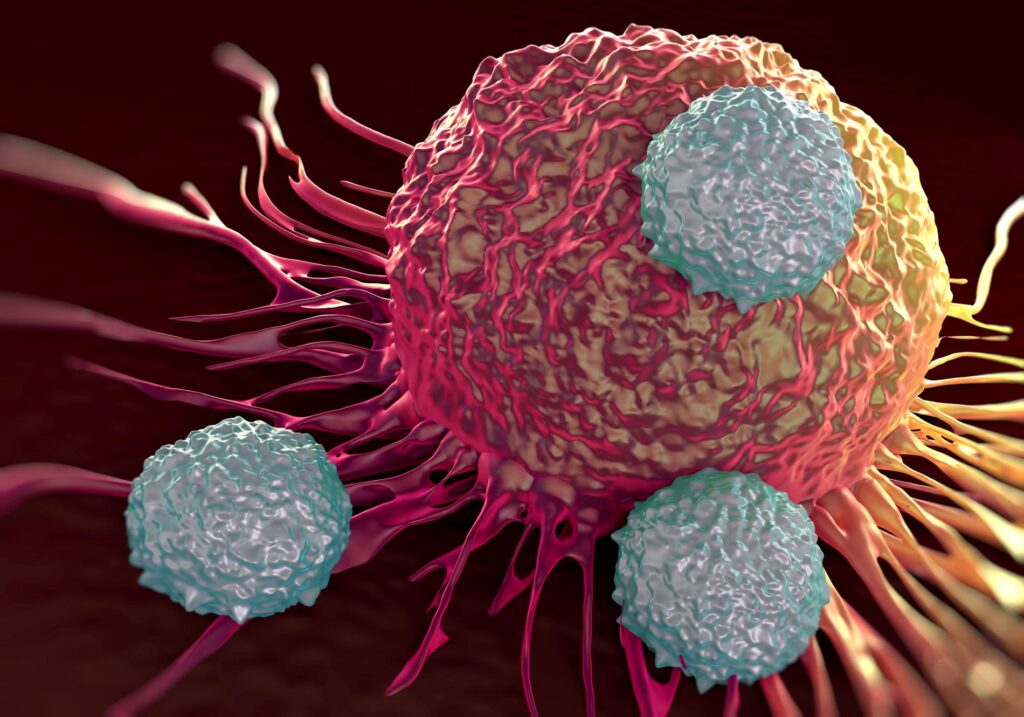With its pipeline expanding beyond its initial focus on in vivo programming of myeloid cells, for which the company took its initial name, Myeloid Therapeutics has rebranded as Create Medicines and unveiled a drug development strategy adding to its initial emphasis on cancer treatments.
Create says its approach now emphasizes direct multilineage immune programming of T cells and NK cells in addition to myeloid cells, using its own messenger RNA and lipid nanoparticle (mRNA-LNP) platform to directly program immune cells inside the body. That platform is versatile enough, the company says.
The company adds its evolved approach will be better able to deliver scalable, redosable, off-the-shelf immunotherapies that provide greater effectiveness against disease—not just in oncology, but autoimmunity, and fibrosis as well.

“We started with a hypothesis and a mission of programming myeloid cells to change the outcome in solid tumors. We checked a lot of those boxes. We’re using that foundation now to bring in NKs and T cells into the equation, as we move forward, and that was why we changed our name to Create Medicines,” Daniel Getts, PhD, Create’s CEO and co-founder, told GEN Edge.
“Our long-term plan right now is to bring NK, myeloid, and T cell CARs into solid tumors, targeting multiple different antigens to really get us to where we want to go,” Getts added. “We’re seeing really good, promising data in the context of partial responses, stable disease, changes in the TME. But we want to get to complete responses in tumors, and we want to do it in an accessible, scalable way.”
Create reasons that direct in vivo programming of immune cells inside patients will negate the need for them to undergo a preconditioning regimen before dosing, thus eliminating complex ex vivo manufacturing requirements and reducing their time to treatment.
The company has broadened its pipeline of RNA-based in vivo CAR therapeutics, pursuing programs that target HER2, TROP2, and GPC3-positive solid tumors and validated targets for in vivo CAR T-mediated B cell depletion.
Next-generation constructs
Create is among developers of next-generation CAR constructs looking to avoid the pitfalls associated with earlier iterations of the technology, which according to a review article published in August include antigen heterogeneity, immunosuppressive tumor microenvironments, and toxicities such as cytokine release syndrome and neurotoxicity. In addition to applying alternative immune cells, the new CAR constructs are intended to expand the field beyond cancer, to infectious diseases, as well as the autoimmune diseases and fibrosis that Create is interested in.
Create’s pipeline is led by two clinical candidates based on programming myeloid cells: MT-302, a solid tumor therapy candidate targeting TROP2 to treat gastroesophageal junction (GEJ) cancer using immunotherapy; and MT-303, a candidate for hepatocellular carcinoma that targets GPC3. Dose escalation is ongoing for MT-303 in a Phase I trial (NCT06478693), while MT-302 has completed dose escalation in a Phase I/II trial (NCT05969041) and has shown a tolerable safety profile.
The trials have assessed a combined more than 40 patients receiving more than 200 doses delivered with no cumulative toxicities, creating a sizeable clinical dataset within in vivo CAR therapeutics. Create says its studies have shown proof of mechanism, with paired biopsies confirming that CAR+ immune cells had infiltrated tumors, with immune remodeling and CD8 T cell recruitment.
The studies have also shown the detection of CAR expression in circulating immune cells, with stable disease in several patients and a confirmed partial response on treatment for 16 months.
Create says the results have validated its ability to reprogram immune cells inside the body and provide the foundation for expansion into multi-lineage programming across T cells, myeloid cells, and NK cells.
“As we started digging into the correlative data that we were generating in these clinical trials, we were sequencing every single patient that gets our products, blood and tumors. And what we discovered is that NK cells and T cells were also taking up our LNP CAR that we were delivering,” Getts recalled. “And this was really the genesis for us to really think about changing our name.”
During the fourth quarter, Create expects to dose the first patient in a Phase I/II clinical trial of MT-304, another solid tumor treatment but one that targets HER2 (HER2; solid tumors).
First-in-class potential
MT-304 holds potential as a first-in-class multi-immune CAR engaging both NK and myeloid cells for enhanced cytotoxicity, and is the first candidate Create will have advanced to the clinic based on its multi-immune platform. MT-304 has shown greater activity in a HER2 tumor model compared with a CD89-based CAR, Create says.
Also in Create’s pipeline is a preclinical retrotransposon-based in vivo CAR T that is being developed as the first all-RNA product candidate with permanent CAR integration for B-cell depletion—as well as additional multi-lineage programs in preclinical development across oncology and immunology.
Create is creating its pipeline candidates through its targeted, programmable cell engagement platform. The platform’s key features include:
- Selective activation: Cell-specific receptors and LNPs for precise T, myeloid, and NK cell programming.
- Flexible durability: Transient or stable CAR expression, with permanent integration via RNA-based retrotransposon technology.
- mRNA: Up to 8+ days of linear mRNA expression with no reactogenicity, what the company calls industry leading RNA.
- Speed and scalability: Concept-to-clinic in <12 months with low-cost manufacturing.
The company was seed funded in 2019 and formally launched in 2021 with $50 million in financing as Myeloid Therapeutics, with two notable cell therapy and cancer experts serving as its scientific founders. One is Ronald Vale, PhD, an emeritus professor of cellular and molecular pharmacology at University of California, San Francisco, who maintains a lab at Howard Hughes Medical Institute’s Janelia Research Campus, which he led as executive director from 2020 until last year. The other is Siddhartha Mukherjee, MD, DPhil, of Columbia University, a hematologist and oncologist whose 2010 book The Emperor of All Maladies: A Biography of Cancer won the Pulitzer Prize for General Nonfiction a year later.
The company has since raised a total of $125 million in equity, and about $60 million in non-dilutive funding from different partnerships, Getts said.
Last year, Myeloid restructured its operations by shedding an undisclosed number of U.S. jobs. Getts said the company’s U.S. workforce stands at 25-30 people while its global workforce is up to 60 people, with growth coming in part from a manufacturing facility in New South Wales, Australia. The island continent is one of several countries worldwide where Create conducts clinical trials, in addition to South Korea, Taiwan, and the Netherlands.
“We’ll continue to support our business with the people that we need to be successful, and we look at that on a month-to-month, day-to-day basis, because that’s kind of the environment that we’re in,” Getts said.


